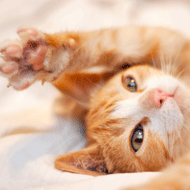
US veterinary organisations oppose the ban
New York is planning to impose a ban on the declawing of cats, prompting a debate on whether the practice is inhumane.
If the legislation is passed, New York would become the first state in America to prohibit the surgery, which is comparable to having the tips of the fingers cut off at the first joint below the fingernail.
The law would not apply to treatment for a therapeutic purpose. For example to address a medical condition such as an existing or recurring illness, infection, disease or injury.
According to The Telegraph, veterinary organisations in America oppose a ban on declawing, often because it is the only way for cats with behavioural problems to keep from being abandoned or euthanised.
They say that such medical decisions should be left to professionals and cat owners, and not politicians.
“None of us love the procedure,” said Richard Goldstein, a veterinary surgeon at New York’s Animal Medical Centre. “But when the alternative is condemning the cat to a shelter or to death? That’s why we do it.”
Supporters of the ban say destructive clawing can often be dealt with through nail clipping, nail caps or scratching posts.
Jenner Conrad is a vet who travelled to the state of Albany this past week to lobby for the proposed ban. She said: “It’s amputation. It is the equivalent of taking a cigar cutter and cutting the end joint off.”
Cat declawing is illegal in Britain, Australia and several European countries. The practice is also banned in Los Angeles and some other Californian cities.
It is estimated that around a quarter of all pet cats in America will be declawed in their lifetime.



 The latest
The latest